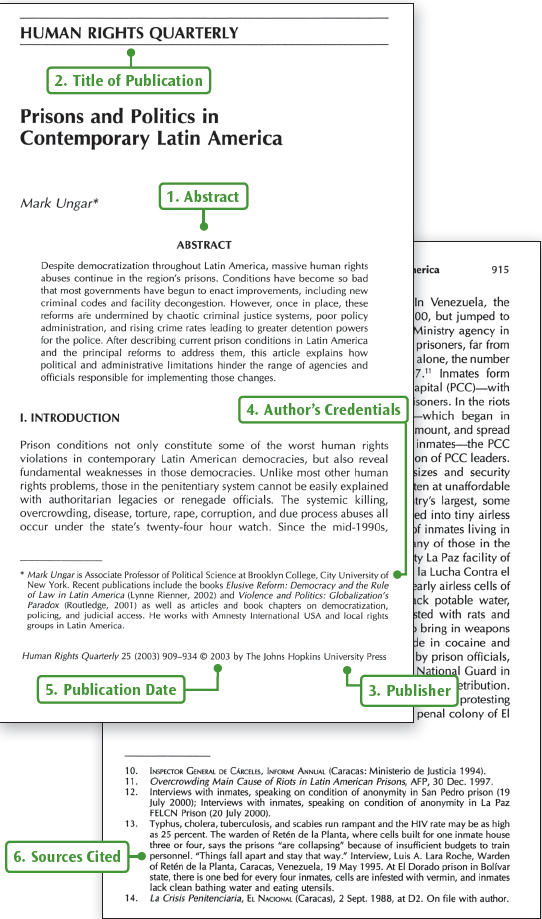Evaluating Articles
SOURCE MAP: Evaluating Articles
Determine the relevance of the source.
- 1 Look for an abstract, which provides a summary of the entire article. Is this source directly related to your research? Does it provide useful information and insights? Will your readers consider it persuasive support for your thesis?
Determine the credibility of the publication.
- 2 Consider the publication’s title. Words in the title such as Journal, Review, and Quarterly may indicate that the periodical is a scholarly source. Most research projects rely on authorities in a particular field, whose work usually appears in scholarly journals. For more on distinguishing between scholarly and popular sources, see 13a.
- 3 Try to determine the publisher or sponsor. This journal is published by Johns Hopkins University Press. Academic presses such as this one generally review articles carefully before publishing them and bear the authority of their academic sponsors.
Determine the credibility of the author.
- 4 Evaluate the author’s credentials. In this case, they are given in a note, which indicates that the author is a college professor and has written at least two books on related topics.
Determine the currency of the article.
- 5 Look at the publication date, and think about whether your topic and your credibility depend on your use of very current sources.
Determine the accuracy of the article.
- 6 Look at the sources cited by the author of the article. Here, they are documented in footnotes. Ask yourself whether the works the author has cited seem credible and current. Are any of these works cited in other articles you’ve considered?
In addition, consider the following questions:
- What is the article’s stance or point of view? What are the author’s goals? What does the author want you to know or believe?
- How does this source fit in with your other sources? Does any of the information it provides contradict or challenge other sources?

Mark Ungar, “Prisons and Politics in Contemporary Latin America.” Human Rights Quarterly 25:4 (2003), pp. 909, 915. © 2003 Johns Hopkins University Press. Reprinted with permission of Johns Hopkins University Press.